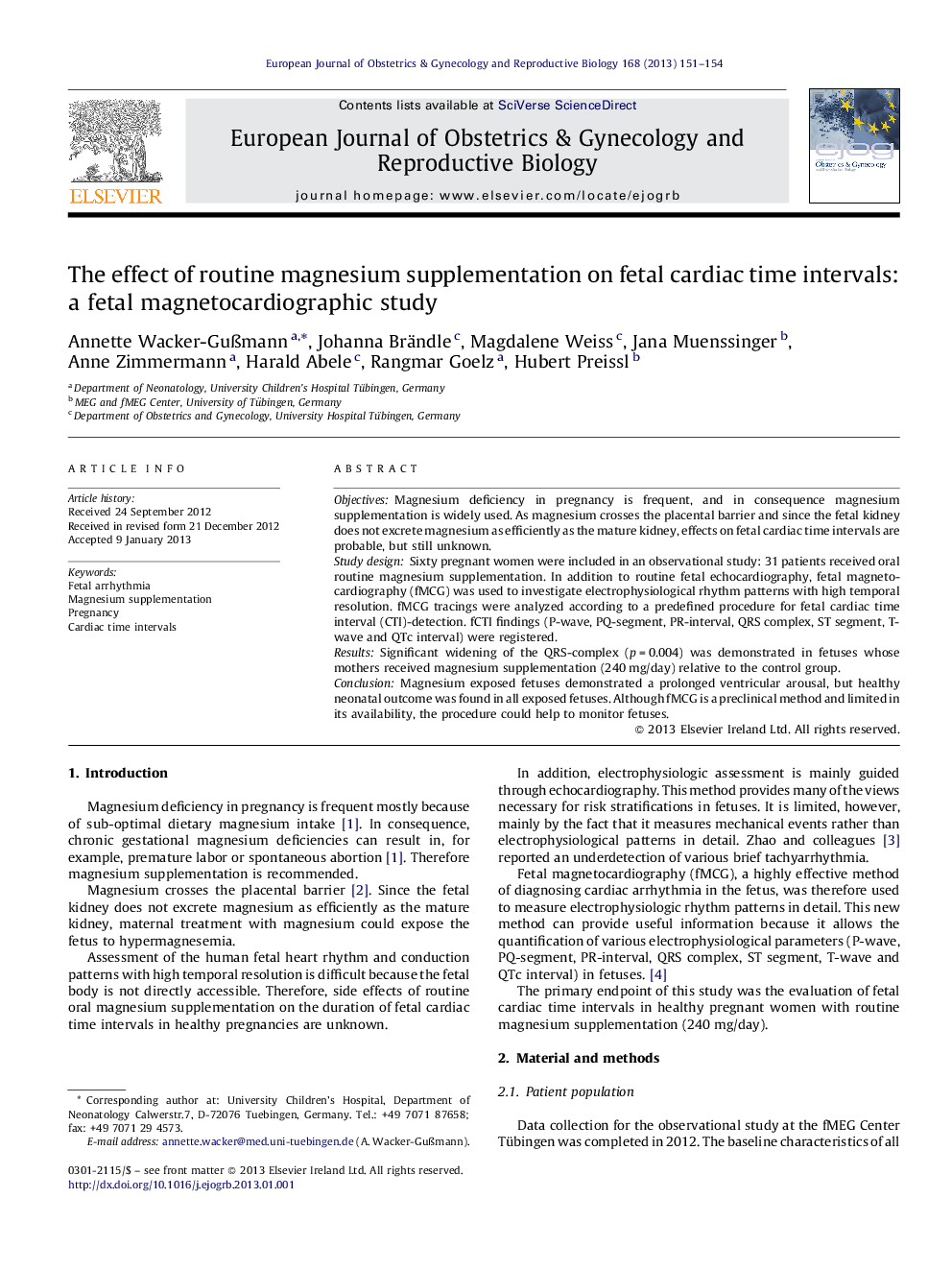| Article ID | Journal | Published Year | Pages | File Type |
|---|---|---|---|---|
| 3920107 | European Journal of Obstetrics & Gynecology and Reproductive Biology | 2013 | 4 Pages |
ObjectivesMagnesium deficiency in pregnancy is frequent, and in consequence magnesium supplementation is widely used. As magnesium crosses the placental barrier and since the fetal kidney does not excrete magnesium as efficiently as the mature kidney, effects on fetal cardiac time intervals are probable, but still unknown.Study designSixty pregnant women were included in an observational study: 31 patients received oral routine magnesium supplementation. In addition to routine fetal echocardiography, fetal magnetocardiography (fMCG) was used to investigate electrophysiological rhythm patterns with high temporal resolution. fMCG tracings were analyzed according to a predefined procedure for fetal cardiac time interval (CTI)-detection. fCTI findings (P-wave, PQ-segment, PR-interval, QRS complex, ST segment, T-wave and QTc interval) were registered.ResultsSignificant widening of the QRS-complex (p = 0.004) was demonstrated in fetuses whose mothers received magnesium supplementation (240 mg/day) relative to the control group.ConclusionMagnesium exposed fetuses demonstrated a prolonged ventricular arousal, but healthy neonatal outcome was found in all exposed fetuses. Although fMCG is a preclinical method and limited in its availability, the procedure could help to monitor fetuses.
